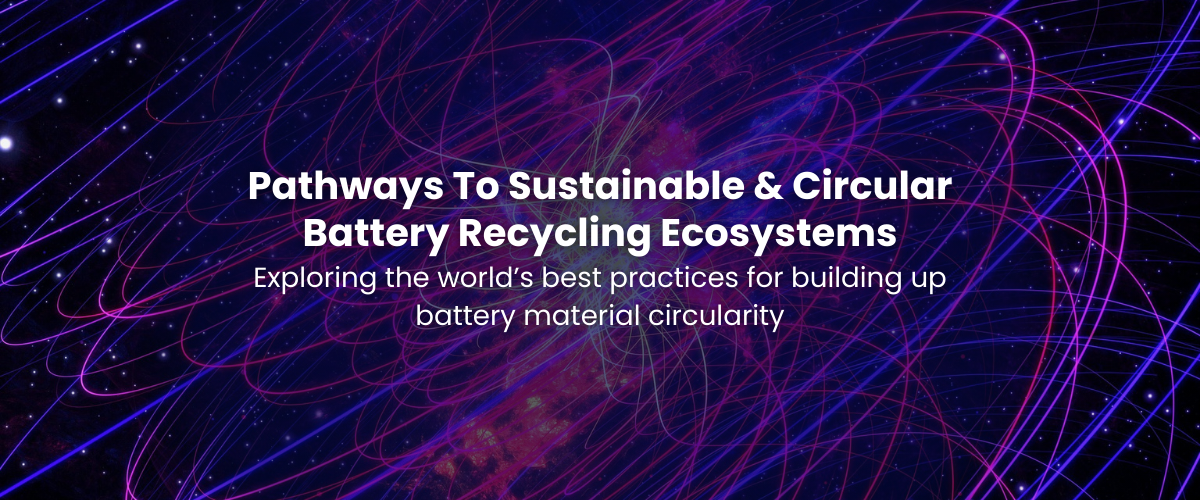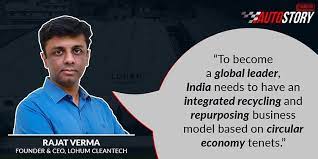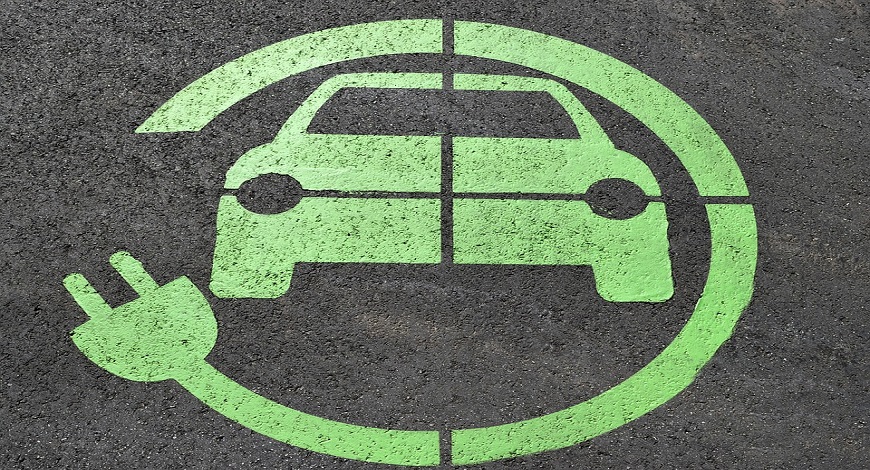
In the race to forge a sustainable and environmentally conscious world, the battery recycling industry today stands at the cusp of change. India’s rapid technological growth and increasing adoption of electric vehicles have led to a significant surge in battery usage. Global battery recycling markets, reportedly valued at USD 26.9 billion as of 2023, are anticipating significant growth, reaching around USD 54.3 billion by 2030.
This impressive growth is expected to continue at a steady CAGR of 10.5% from 2023 to 2030, showcasing the market’s stability and promising outlook throughout the study period and into the forecast period.
As custodians of the only Earth in known existence, we are responsible for building upon the following 10 pathways towards a brighter and greener future.
Government incentives can encourage greater participation in battery recycling efforts. Offering tax breaks or financial rewards to citizens, businesses, and recycling facilities for recycling used batteries can create a positive economic impact. The Government of India has established PLI schemes for advanced cell manufacturing, but not for battery recycling yet.
However, NITI Aayog endorsed the policy suggestion of battery recycling PLI schemes in its Mine to Market: Critical Minerals Supply Chain report in 2023, discussing the critical minerals & active materials ecosystem for the production of lithium-ion batteries (LIB). The report highlighted pathways to how India can support resilient supply chains of critical minerals, establish self-reliance, and ensure an expedient clean energy transition.
India’s Battery Waste Management Rules (BWMR 2022) serve as clear guidelines for the roles of stakeholders in the ecosystem and provide clarity on the scope of collaboration amongst us.
The basic premise is the implementation of Extended Producer Responsibility (EPR), meaning that EV Lithium ion battery manufacturers in India, OEMs, dealerships, and other battery underwriters, have a responsibility to recover a significant percentage of batteries for repurposing or recycling at the end of life.
While battery safety standards such as AIS-156 also help streamline battery recycling, EV and second life ESS batteries, as well as the auxiliary industries, need more standardization akin to the EU’s USB standardization measures. Another measure could be restrictions on the export of End of Life batteries and battery scrap to build up a robust domestic supply.
Additionally, a critical step in this direction would be to create a focused department, action group, or institution for battery and energy transition related policies aligned with various Government ministries and bodies in the same field. This will eliminate any scope of policy contradictions or overlaps between the various stakeholders such as MOEF, MoRTH, MHI, and the Ministry of Mines. The move will tangibly streamline communication between Government, Industry and Academia.
The e-waste management rules in India which mandate EPR for electronic waste were amended in 2022 to exclude batteries and remove redundancy or overlap with BWMR 2022, but there remains an overall demand for further clarity, and a need for rigorous legislation and clear implementation.
A thriving battery recycling industry can create employment opportunities in various sectors. India can invest in vocational training and skill development programs to equip the workforce with the necessary expertise in recycling technologies. The Ministry of Skill Development and Entrepreneurship can spearhead such initiatives to nurture a skilled workforce, and most state EV policies have already provided incentives for upskilling professionals working for Lithium ion battery manufacturers in India, recycling, and energy transition material ecosystems.
According to the International Labour Organization (ILO), an estimated 24 million new jobs could be created worldwide by 2030 if the right policies for a greener economy are in place.
Investing in advanced recycling technologies and collaborating on shared innovations with other ecosystem stakeholders is essential for maximizing resource recovery. India can collaborate with research institutions and private enterprises to explore innovative and novel battery material recycling methods, which efficiently extracts valuable metals from batteries.
India can allocate research grants and create innovation hubs to drive research in battery recycling. This support can lead to the development of efficient and cost-effective recycling technologies. Most state industrial policies and EV policies already provide capex subsidies and grants for battery R&D, such as in Uttar Pradesh and Telangana.
For instance, the Indian government’s Department of Science and Technology (DST) promotes battery recycling through various funding programs. The DST’s Manthan platform accelerates collaboration at scale between industry and scientific R&D ecosystems to help meet India’s national targets and United Nations’ Sustainable Development Goals (SDGs). The platform empowers various stakeholders to upscale the interactions with innovators and facilitate R&D, share challenges of emerging technologies, scientific interventions, and discuss those with a social impact.
Convenient collection points play a crucial role in encouraging responsible battery disposal. India can collaborate with retail chains, electronics stores, and local community centers to set up easily accessible collection points. Encouraging collection, or ‘reverse logistics’, can optimize and speed up the recycling process. This can be done in two ways; setting up state-facilitated battery stewardship programs, similar to Australia, California, and Japan.
Additionally, the government can bring the informal waste collectors or “kabadiwallas” into the formal setup by registering them, providing them IDs, and connecting them to regional collection centers and recyclers. For instance, the Uttar Pradesh Electric Vehicle Manufacturing & Mobility Policy elaborates on state-facilitated collection centers. Another example is the e-waste drop-off centers in Bengaluru.
Collaborating across the energy transition material ecosystem is pivotal in promoting eco-friendly battery designs. The government and industry bodies can incentivize lithium ion battery manufacturers in India to create easily recyclable products, with standardized components. For instance, Lithium ion battery manufacturers in India can design batteries with easy-to-remove cells, allowing for efficient dismantling during recycling processes. The government can expedite the ecosystem’s growth via a mandate promoting environmentally-conscious design, akin to EU battery regulations 2023, where similar guidelines can be issued by BIS or MoEFCC in India.
The pricing and commodity trading of energy transition materials and battery ecosystem assets within India becomes key at a time of volatile international markets and supply monopolies. Proponents of clean energy transition materials like LOHUM are taking action to insulate stakeholders against price fluctuations and deliver future-proof battery buyback and battery raw material prices underwritten by the company, on the DETX™ platform.
The index tracks current and historic prices of critical metals used by Lithium ion battery manufacturers, as well as cell prices of various chemistries. By offering market benchmarks and comparisons of reuse and recycle Lithium ion battery scrap price against those available on exchanges, the live index empowers stakeholders to navigate the battery trading landscape with confidence and clarity.
Stringent guidelines and monitoring mechanisms in the form of India’s Hazardous Waste Management Rules have been in place to ensure safe handling, generation, processing, treatment, package, storage, transportation, use reprocessing, collection, conversion, resale, destruction and disposal of Hazardous Waste.
India can incrementally introduce further clarity to strengthen its hazardous waste management regulations and implement periodic audits to ensure compliance. The Central Pollution Control Board (CPCB) can play a vital role in enforcing such regulations. Currently, there are no standard rules for the transportation and storage of re-purposed batteries.
Global collaboration can bring in expertise and knowledge exchange. India is a signatory to the Basel Convention, which is a treaty that was adopted in 1989 by the Conference of Plenipotentiaries to facilitate the exchange of best practices and technological advancements in battery recycling, and prevent unethical waste dumping activities internationally. India ratified the convention in June 1992, and it went into effect on September 22, 1992, India’s hazardous waste rules are a result of the same.
An emerging concept India can implement and adopt from EU Battery Regulations is the ‘Battery Passport’ for traceability in the closed loop battery economy. Active participation in global initiatives helps India stay aligned with international standards. For instance, the Bureau of Indian Standards has participation in IEC committees, which is the standard-setting body for the EU. India also frequently aligns its standards with UL.
The closed-loop energy transition and battery asset ecosystem’s stakeholders can build partnerships across auxiliary industries, like Lithium ion battery manufacturers in India building partnerships with plastics recycling companies and e-waste management companies for non-battery-related waste recycling and optimal Lithium ion battery scrap price.
Reports published by McKinsey estimate that a brand-new battery-manufacturing facility hosting a total annual capacity of 30 to 40 GWh may result in as many as 3,200 new jobs. The report infers that a similar number of jobs may be created indirectly via suppliers, construction, food, and essential-services sectors. Now imagine if all those support industries also took up sustainable practices like sending electronic and plastic waste for recycling and organic waste for composting via various cross-sector partnerships.
By fostering awareness, embracing technology, and ensuring responsible practices, we can steer the course toward a sustainable and environmentally conscious future. Lithium ion battery recycling is the essential choice over battery disposal in municipal waste, but battery repurposing is even better both economically and environmentally. For instance, while recycling batteries at LOHUM consumes 100x less water than conventional battery metal mining, repurposing batteries saves 90% CO2 emissions, and consumes no water at all.
According to a report by Allied Market Research, the global electric vehicle battery recycling market was valued at around $139 million in 2017 and is expected to grow to $2.27 billion by 2025, or around ₹11,500 crores in 2017 to around ₹1,88,000 crores by 2025.
The entire ecosystem needs to prioritize repurposing assets that have considerable residual value and utility in second life battery solutions, as determined by battery testing, and recycling them should be the last step, owing to the high costs of brand-new lithium ion battery cell production.
Related blogs
This entrepreneur wants India to make its own lithium-ion cells for electric vehicle batteries

Forbes India
Rajat Verma already recovers raw materials from used cells at his venture, LOHUM Cleantech. He wants to close the loop by making cells in India as well.
India needs integrated recycling and repurposing battery business model: Rajat Verma of LOHUM Cleantech

YOURSTORY
In an interaction with AutoStory, Rajat Verma, Founder and CEO of LOHUM Cleantech, speaks about building his company, and about battery manufacturing and repurposing as an industry.
Sourcing Raw Materials Is A Big Challenge In Li-ion Battery Space: Founder Lohum

Business World Disrupt
Recognized as ‘The Most Innovative Company of the year 2022’ by The Confederation of Indian Industry (CII), LOHUM is a producer of sustainable Li-ion battery raw materials
1800 572 8822
Email : enquiry@lohum.com
G98, Site, 5, Kasna, Block A, Surajpur Site V, Greater Noida, Uttar Pradesh 201306
LOHUM Cleantech Private Limited, Plot No. D-7 & 8, Site 5th, Kasna Industrial Area, Greater Noida, Gautam Budh Nagar, Uttar Pradesh – 201308
LOHUM Cleantech Private Limited, Plot No. O-17, Site 5th, Kasna Industrial Area, Greater Noida, Gautam Budh Nagar, Uttar Pradesh – 201308